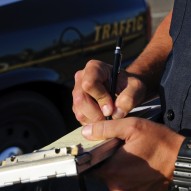Petition For a Certificate of Relief From Disabilities
Certificate of Relief From Disabilities is an Illinois statutory remedy (730 ILCS 5/5-5.5-25) available to individuals who are barred from obtaining a certificate or a license as a result of a criminal conviction. Unlike expungement and sealing, Certificate of Relief From Disabilities does not destroy the record, nor does it make it unavailable to the public or employer. The Certificate lifts the statutory restrictions, making a previously ineligible individual, eligible for a license. The Certificate, still, does not prevent any judicial proceeding, administrative, licensing, or other body, board or authority from exercising its discretionary power to refuse to issue a license to an eligible individual. Eligibility: A Certificate of Relief From Disabilities is available to a person who has been convicted of a crime in Illinois or of an offense in any other jurisdiction that does not include any offense or attempted offense that would subject a person to registration under the Sex Offender Registration Act, the Arsonist Registration Act, or the Murderer and Violent Offender Against Youth Registration Act. The Court must also consider whether granting such relief is consistent wight the rehabilitation of such individual, and whether it is consisted with the public interest. Not Eligible: An individuals who has been convicted of committing or attempting to commit a Class X felony, aggravated driving under the influence of alcohol, other drug or drugs, or intoxicating compound or compounds, or any combination thereof, aggravated domestic battery, or a forcible felony (“Forcible felony” means first degree murder, second degree murder, aggravated arson, arson, aggravated kidnapping, kidnapping, aggravated battery that resulted in great bodily harm or permanent disability, and any other felony which involved the use of physical force or violence against any individual that resulted in great bodily harm or permanent disability.) The Certificate of Relief From Disabilities is available for the following: The Animal Welfare Act [Petitioner was not convicted under Section 3, 3.01, 3.02, 3.03, 3.03-1 Humane Care for Animals Act, 510 ILCS 70/3, 510 ILCS 70/3.01, 510 ILCS 70/3.02, 510 ILCS 70/3.03, 510 ILCS 70/3.03-01 or 510 ILCS 70/4.01, 710 ILCS 5/26/-5] The Illinois Athletic Trainers Practice Act, 225 ILCS 5/1 et, seq. The Barber Cosmetology, Esthetics, Hair Braiding and Nail Technology Act of 1985, 225 ILCS 410/1-1 et. seq. The Boiler and Pressure Vessel Repairer Regulation Act 225 ILCS 203/1 et. seq. The Professional Boxing Act, 225 ILCS 105/1 et. seq. The Illinois Certified Shorthand Reporters Act of 1984, 225 ILCS 415/1 et. seq. The Illinois Farm Labor Contractor Certification Act, 225 ILCS 505/1 et seq. The Interior Design Title Act, 225 ILCS 310/1 et. seq. The Illinois Professional Land Surveyor Act of 1989, 225 ILCS 330/1 et. seq. The Illinois Landscape Architecture Act of 1989, 225 ILCS 315/1 et. seq. The Marriage and Family Therapy Licensing Act, 225 ILCS 55/1 et. seq. The Private Employment Agency Act, 225 ILCS 515/0.01 et. seq. The Professional Counselor and Clinical Professional Counselor Licensing Act, 225 ILCS 107/1 et. seq. The Real Estate License Act of 2000, 225...
Read MoreCan Traffic Records Be Expunged or Sealed?
Although expunging traffic tickets was a common practice in Illinois several years ago, especially amongst CDL drivers. This is no longer an option for Illinois drivers. As of January 1, 2010, pursuant to 20 ILCS 2630/5.2(a)(3)(B), “the court shall not order the sealing or expungement of records of minor traffic offenses. 20 ILCS 2630/5.2(a)(1)(G) defines “Minor traffic offenses” as “a petty offense, business offense, or Class C misdemeanor under the Illinois Vehicle Code or a similar provision of a municipal or local ordinance.” Consequently, ordinary traffic violation such as speeding, immaterial if the sentence is supervision or a conviction, cannot be expunged or sealed. The only remaining remedy is the lapse of time. The secretary of state purges traffic violations, which do not result in suspension, after 5-6 years and 7-8 years for violations that result in suspension. It should also be noted that other traffic violations such as driving while a driver’s license is suspended (625 ILCS 5/6-303), which is a Class A misdemeanor, can still be expunged or sealed. Reckless driving (625 ILCS 5/11-503) can also be expunged if the offense occurred before the individual reached the age of 25 years old and the offender has no other convictions for reckless driving or...
Read MoreCertificates of Eligibility for Expungement of Class 3 and Class 4 Felony Convictions for Servicemen
Effective August, 2013, Illinois permits individuals who have served in the United States Armed Forces or National Guard to apply for Certificate of Eligibility for Expungement of Class 3 and Class 4 Felony Convictions. Petitioners must have served and received an honorable discharge or at the time of the filing of the petition be enlisted and have served one tour of duty. The approval for the Certificate requires unanimous vote of a panel of at least 3 members. Records not eligible for the Certificate include: (1) sex offenses, (2) offenses involving a firearm, and (3) crimes of violence. Individuals whose petitions are denied must wait four years before re-applying for the Certificate of Eligibility for Expungement or filing for a pardon with authorization for expungement from the...
Read MoreExpungement & Sealing Statistics – Fiscal Year 2012
Illinois law requires the Illinois State Police to publish annual statistics concerning the number of criminal records expunged and sealed each year. The numbers for Fiscal Year 2012 are both commendable and alarming. First, the Illinois State Police has done a remarkable job, entering the vast majority of orders to expunge that the agency received for the year, and thereby preventing major backlogs. On the other hand, it’s alarming that in the entire state of Illinois, only 8,620 Petitions to Expunge, were filed for the year. This number clearly indicates a lack of awareness amongst the public that pleas involving supervision, dismissal of charges, and not guilty verdicts do not on their own yield a “no record.” Every such record still needs to be expunged! The finger cannot be pointed at any one agency of division of the judicial system for this disconnect. But the lawyers, the judges, and the police, should all certainly do a better job informing the...
Read More



